Brijuni National Park Croatia is one of the more interesting National Parks that I’ve run across in my global travels. The former summer home of Josip Tito, the park is steeped in history and home to a safari park, nature trails and a golf course. There are even some fossilized dinosaur footprints along one of the beaches.
My husband Daniel and I got a chance to visit Brijuni for ourselves during a trip to Croatia in 2019. After spending a week in the idyllic village of Rovinj, we impulsively decided to spend a night at Brijuni National Park.
And the best part? We could explore the entire island on a golf cart! Since regular cars are not allowed on the island, tooling around the island in a Brijuni golf cart is the preferred mode of transportation. You can even drive the golf carts through the zoo!
The thought of driving around on an island safari park in a Brijuni golf cart immediately brought to mind the movie Jurassic Park – especially given the island’s connection with dinosaurs. I have watched every single Jurassic Park movie and thoroughly enjoyed each one.
I couldn’t wait to explore Brijuni National Park for my own Jurassic Park-style adventure!
Table of Contents
About Brijuni National Park
Granted National Park status in 1983, Brijuni isn’t your typical National Park.
Brijuni consists of 14 small islands on the Croatian part of the Adriatic Sea. Veliki Brijun is the largest island and the one that attracts the most visitors. It is home to the Safari Park, the Dinosaur Dark, and the Tito Museum.
One of the most interesting things about the Brijuni Islands is that they used to be the summer residence of the former leader of Yugoslavia, Josip Broz Tito. He lived on Brijuni from 1945 until his death in 1980 and hosted many political meetings there as well as celebrities.
The islands are also to an extensive network of ancient Roman ruins, along with fully preserved dinosaur footprints from the Cretaceous Period. The only way to access the park is by ferry.
Brijuni continued to remain a National Park when Croatia gained independence from Yugoslavia in 1991.
For more information, including hours and the latest ferry schedule, visit the Brijuni National Park web site.
Hotel Neptun
We arrived on the biggest island, Veliki Brijun, on the 11:00 am ferry and left our bags at the magnificent Hotel Neptun.
Originally constructed in 1913 by Austrian magnate Paul Kupelwieser, Hotel Neptun is a grand building that formerly housed guests of President Tito. Since we arrived in the off season, the staff upgraded us to a swanky room with a balcony and a seaview.
The Brijuni Golf Cart Adventures
While Brijuni National Park does not allow cars on the island, it does have golf carts and bicycles for rent.
Anyone who knows Daniel very well knows that he’s obsessed with golf carts. He extols the virtues of golf carts with some regularity has yearned to drive one as long as I’ve known him.
So we headed over to the Sport Station after we checked in and rented our own private golf cart for the entire day. This would have been a rather expensive venture in the summertime but since we arrived in the off season the price was greatly reduced.
Brijuni golf cart obtained, we were soon zipping around the island at a top speed of 15 mph.
We hadn’t done much research on Brijuni before arriving and didn’t really know what we were in for. Our knowledge basically extended to “National Park” and “Tito History Museum” as well as “Safari Park” and “golf cart rentals available”.
What was in store for us next?
If you’re planning a visit to Veliki Brijun, consider booking your golf cart in advance. For more information, visit the Brijuni National Park Electric Cars web page.
Byzantine Castrum
When we arrived at the impressive Byzantine Castrum ten minutes later, we were blown away.
The ruins of an ancient city stretched out before us, covering approximately 2.5 acres. Originally settled in the 1st century BC during the reign of Roman Emperor Augustus, remains have also been found from the Late Antiquity period as well as Eastern Gothic, Byzantium, Carolingian and Venetian periods.
It’s hard to imagine how this city would have changed over the years as each new group of settlers arrived.
Basilica of St. Mary
Our Brijuni golf cart adventure next took us to the crumbling Basilica of St. Mary.
Constructed in the 6th century, it was built for use by the inhabitants of the Castrum. Today, the structure is half hidden in the trees and its moss-covered walls seem shrouded in mystery.
Roman Villa Ruins
As it turns out, ancient ruins dotted much of the island. We also came across the remains of a luxurious Roman villa that once stretched all the way around an entire bay. Construction on the Roman Villa in Verige Bay began in the 1st century BC and the villa was used up until the 6th century AD.
Brijuni Safari Park
Once we had our fill of ancient Roman ruins, we headed to the Safari Park on the other side of the island. We arrived at a tall fenced enclosure and pushed a button to open the gate.
Soon we were meandering through the green rolling pastures of the Safari Park *in our own golf cart*.
At this point I was bouncing in my seat with excitement. Golf cart? Check. Island? Check. Enclosed Safari Park on an island that you can drive through in said golf cart? Check. It really did feel like were in the movie Jurassic Park.
Dinosaur Park
And similarities didn’t end there. At the other end of the Safari Park, we passed through yet another gate to enter the Park Dinosaura (aka Dinosaur Park).
Apparently, bi-pedal carnivorous dinosaurs called theropods inhabited the islands 125 million years ago. Their three-toed footprints are still clearly visible on the island’s beaches right by the Safari Park. I’ve never seen anything quite like it.
Brijuni Island Nature Hike
Later in the day, we parked the golf cart for a bit and went on a short nature hike.
Daniel and I walked along an interpretive trail which provided information on the area’s flora and fauna. We saw the remains of ancient lime kilns, used to produce lime from the naturally abundant limestone.
Tito History Museum
After passing by a 1600-year old olive tree (you know…as one does) we ended the day at the Tito History Museum.
The ground floor is chiefly filled with taxidermized animals from the Safari Park which was a little creepy but still fascinating. Apparently, the park used to house all sorts of animals including lions and tigers and chimpanzees.
We found the top floor to be more interesting, however. A photographic display depicts a (somewhat sanitized) history of Tito’s life on the Brijuni Islands. As a founding member of the Non-Aligned Movement, Tito hosted numerous meetings on Brijuni with other heads of state. The Non-Aligned Movement as an organization was founded on the Brijuni islands in 1956.
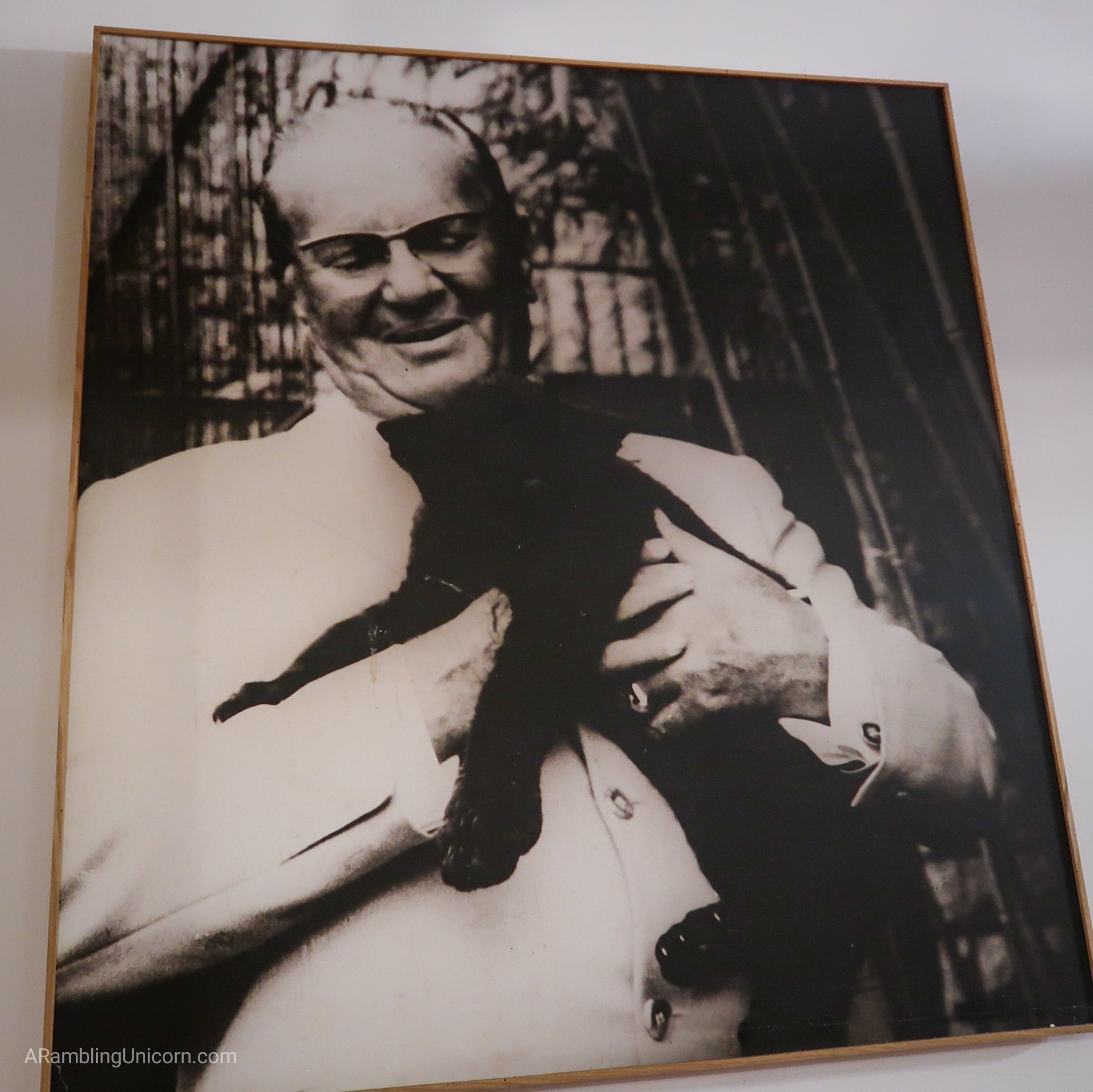
A photo of Tito with one of his animals.
It’s hard for me to wrap my head around the layers of history on the Brijuni Islands. With so many different kinds of historical and culturally significant artifacts in one place, it’s a little overwhelming. But I’m glad we decided to check out Brijuni National Park – it’s one of my favorite places we’ve travelled to so far.

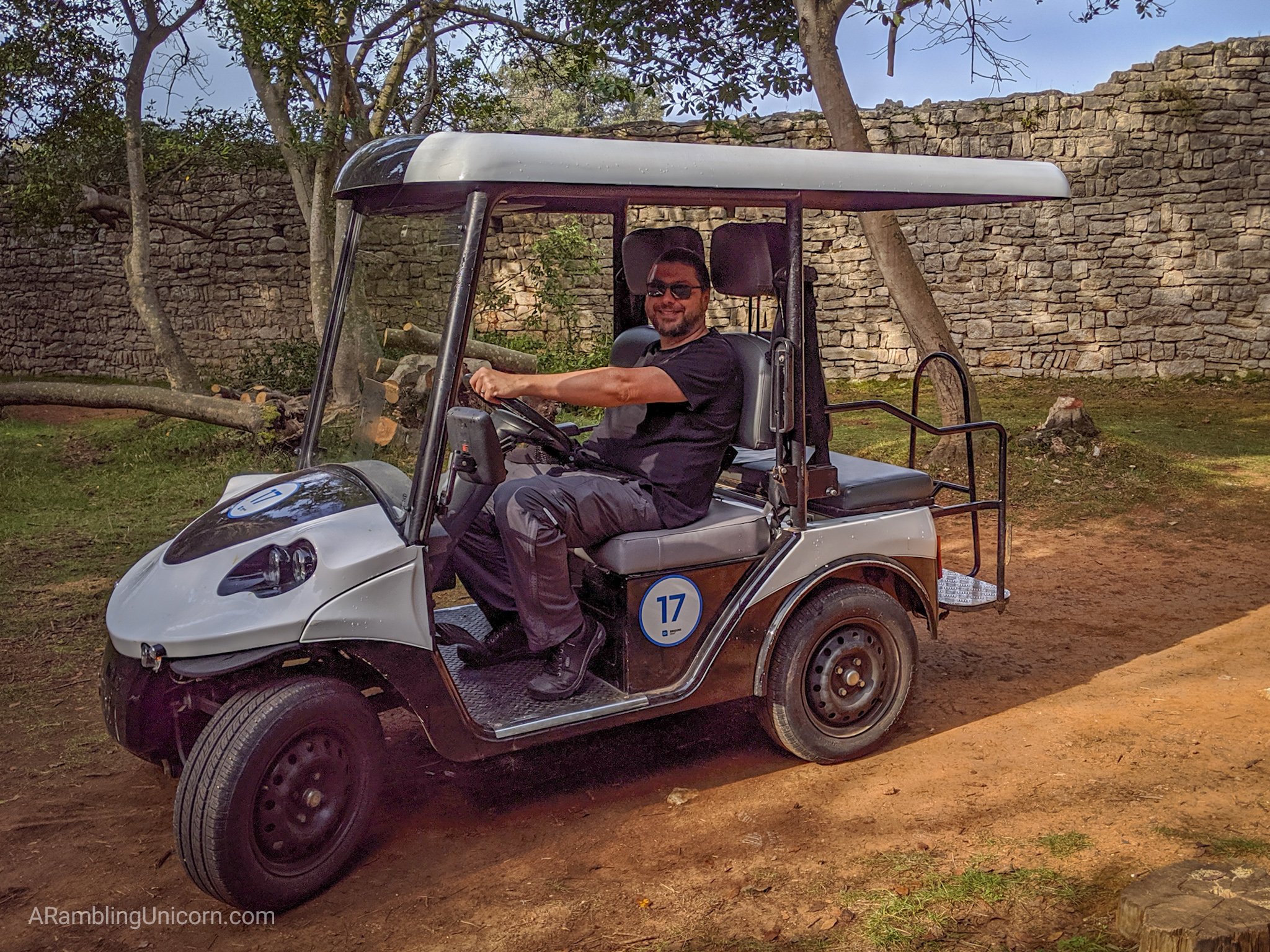
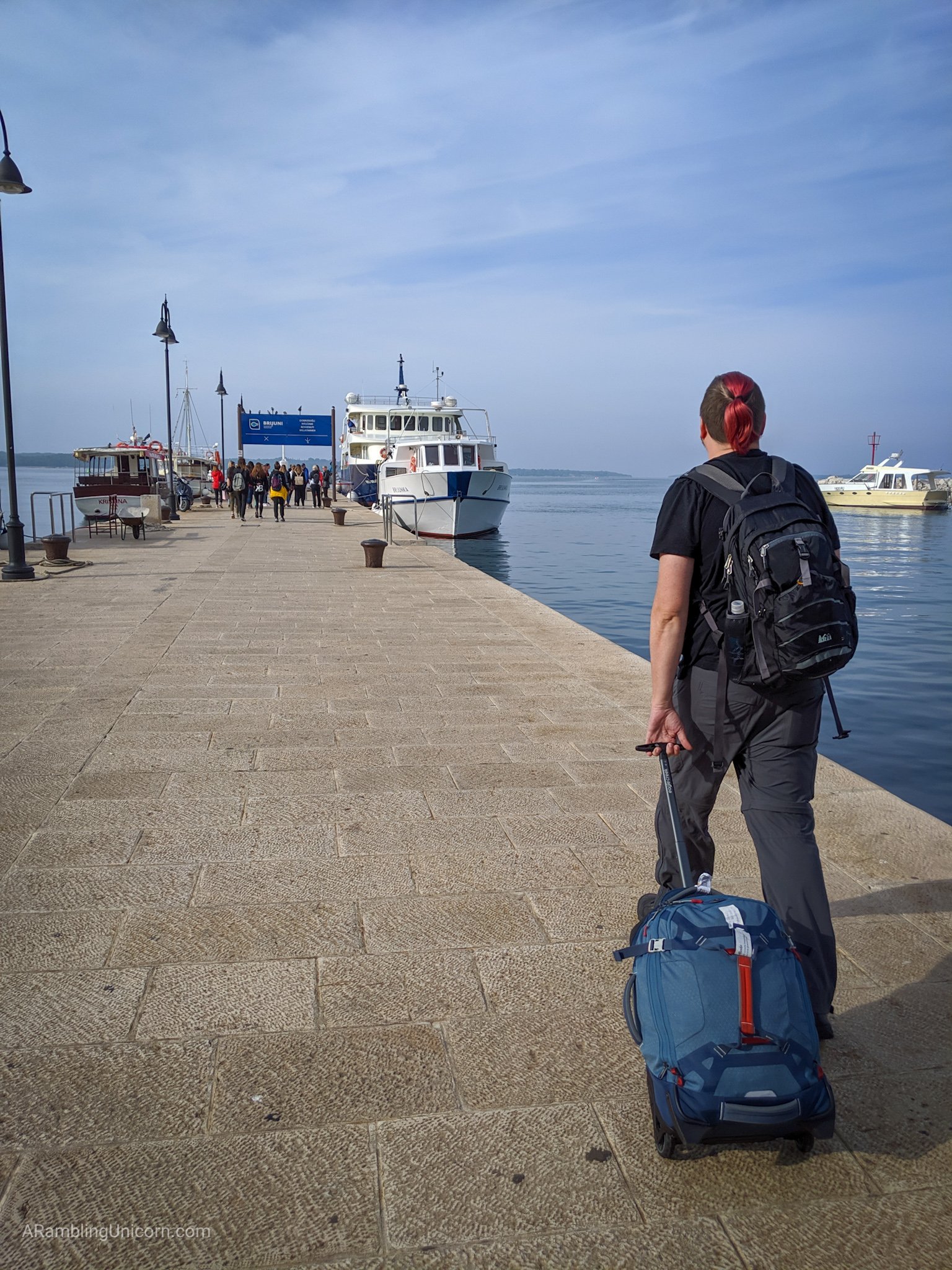

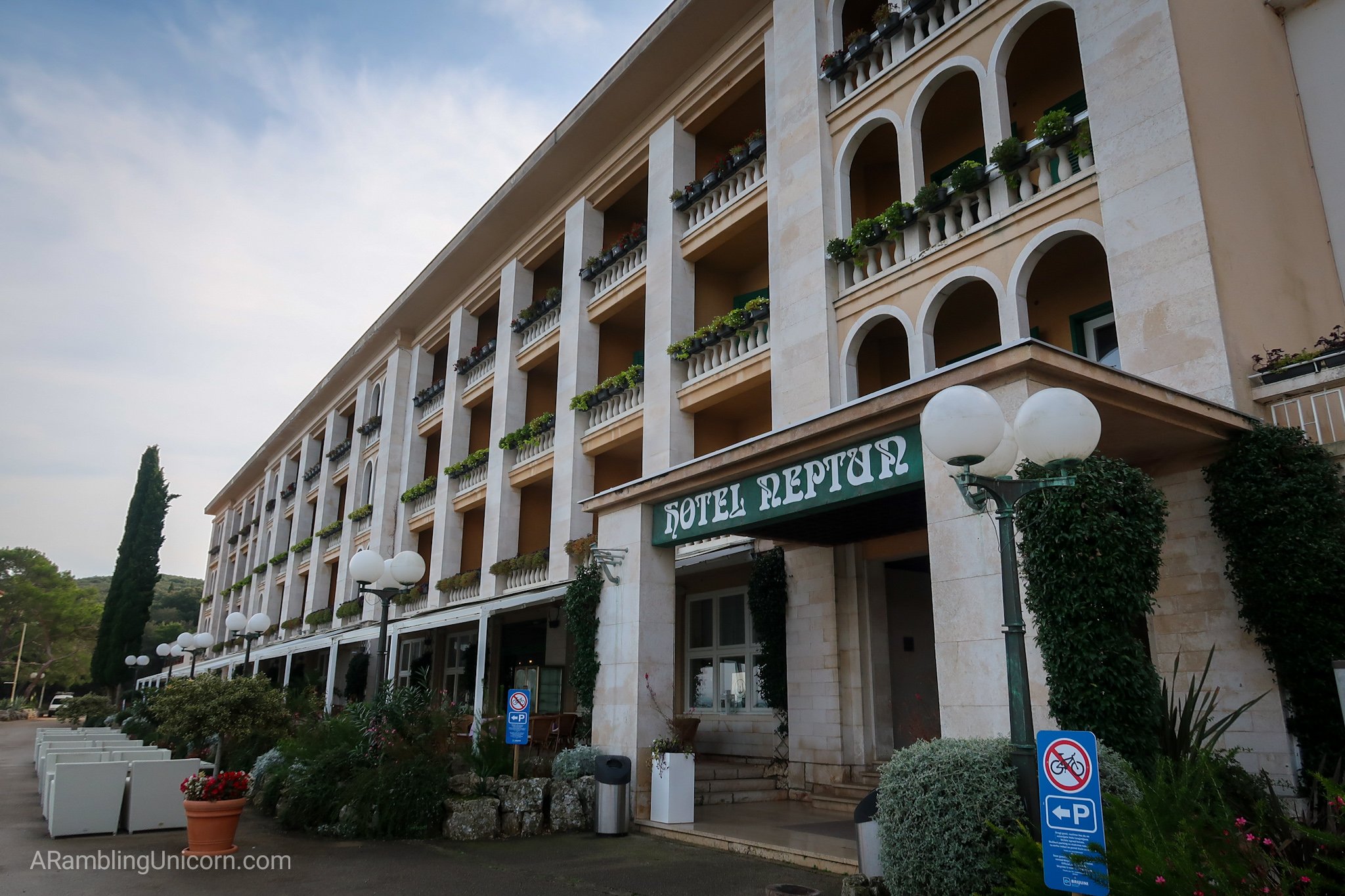
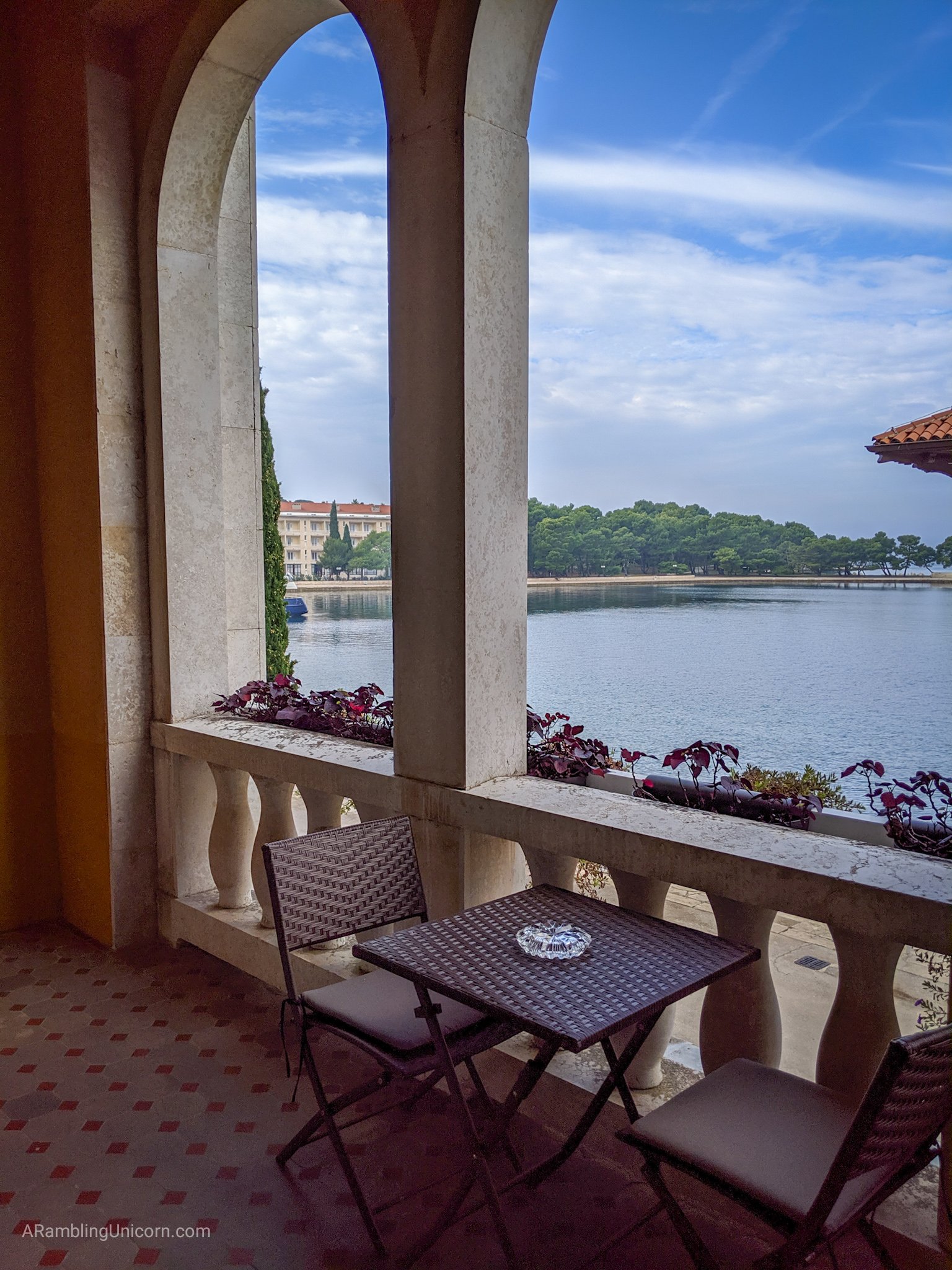
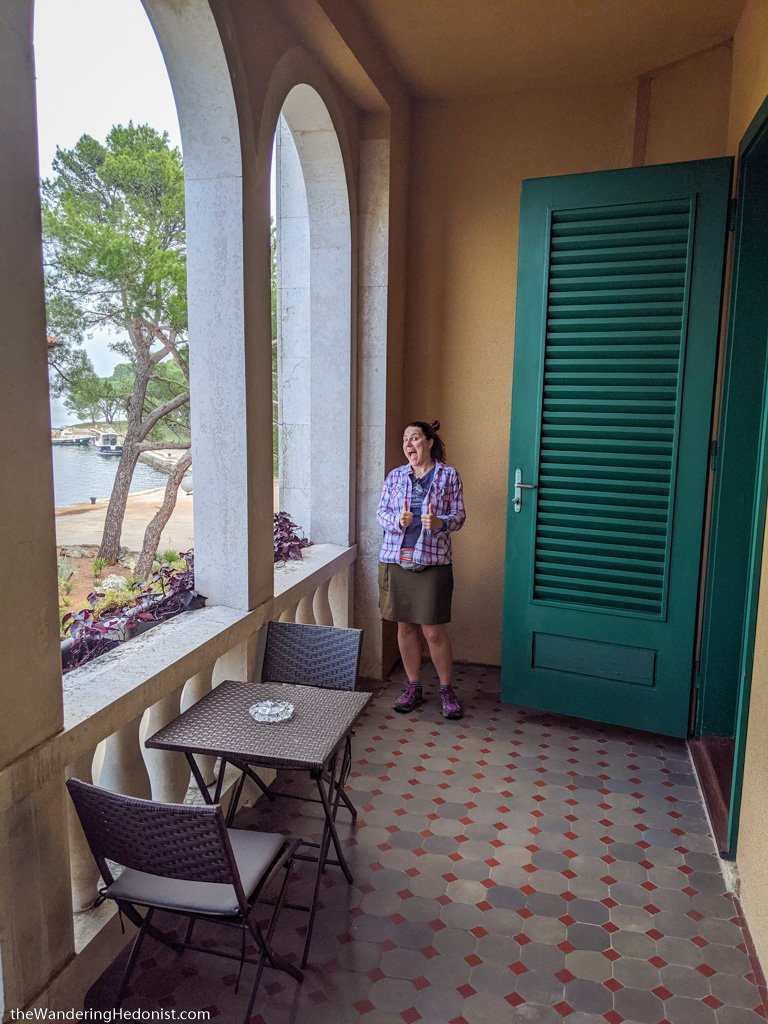
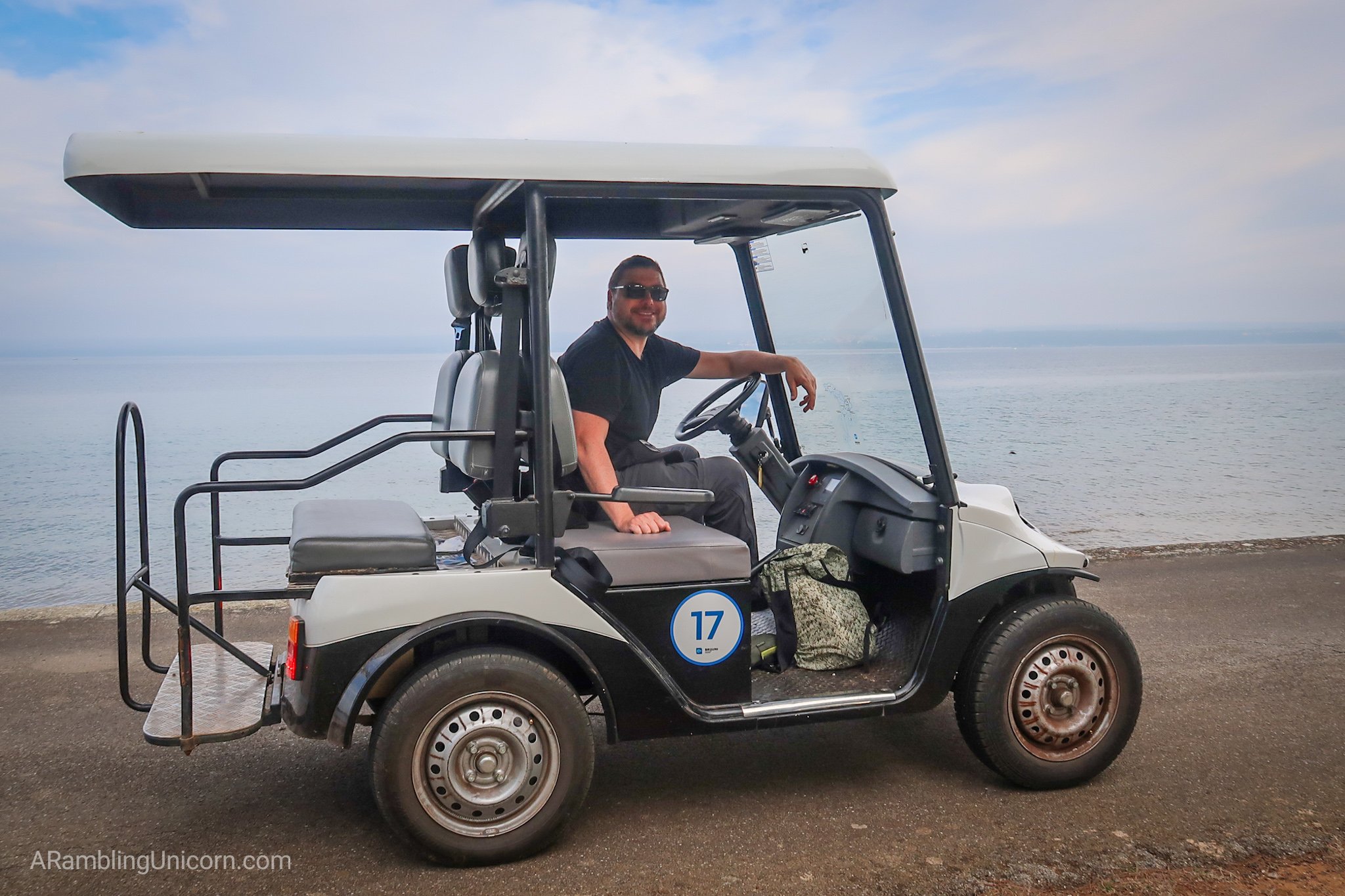
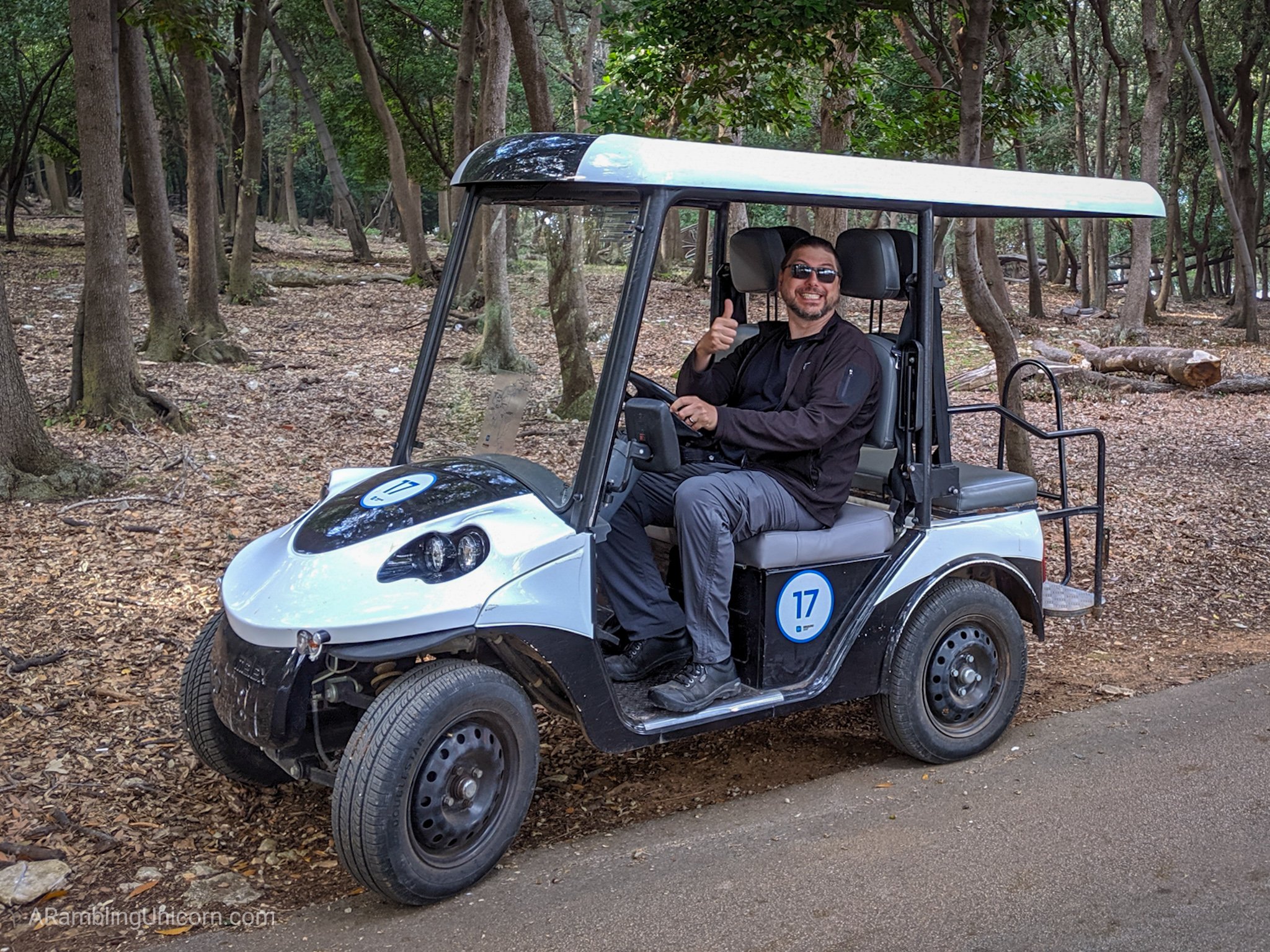
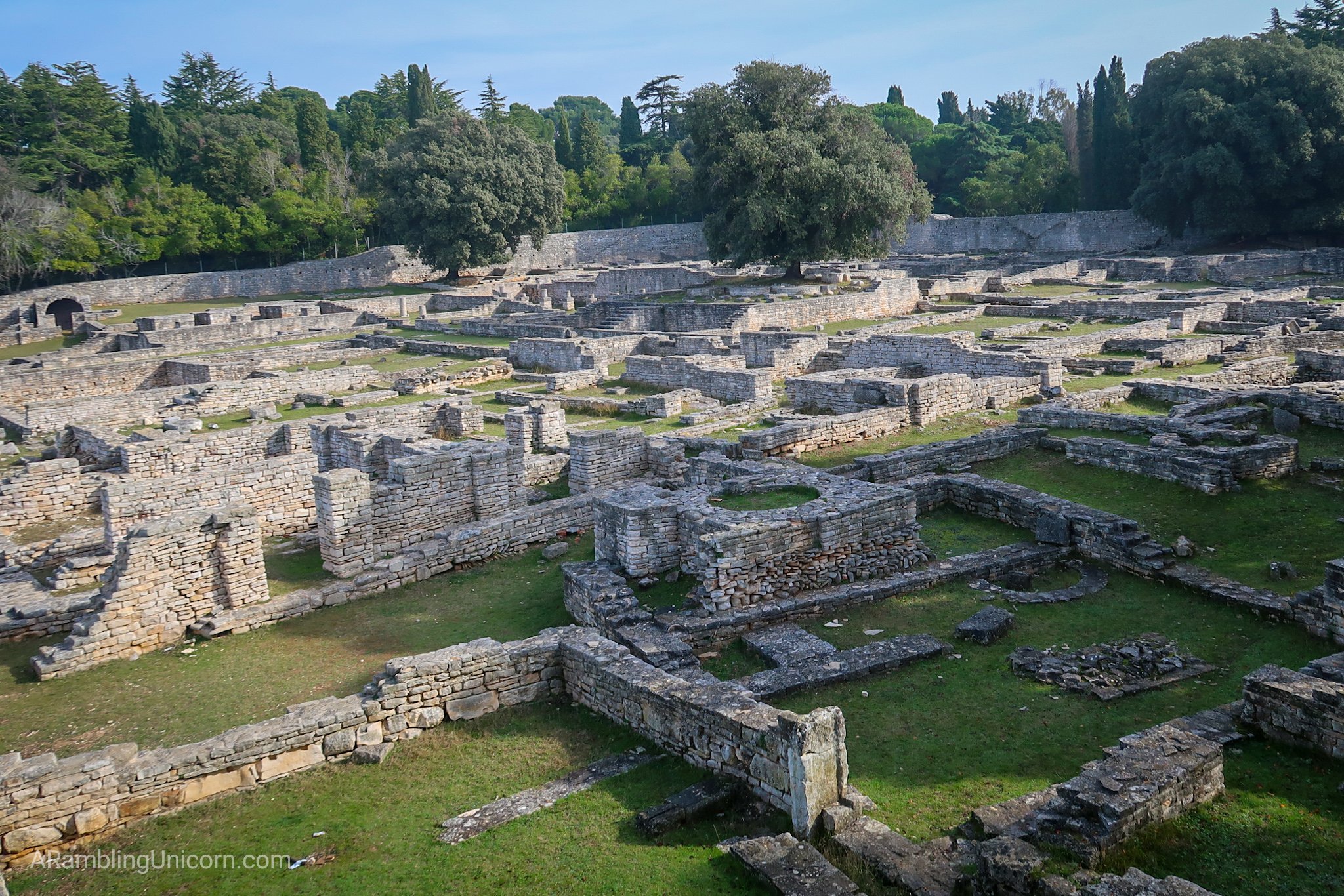
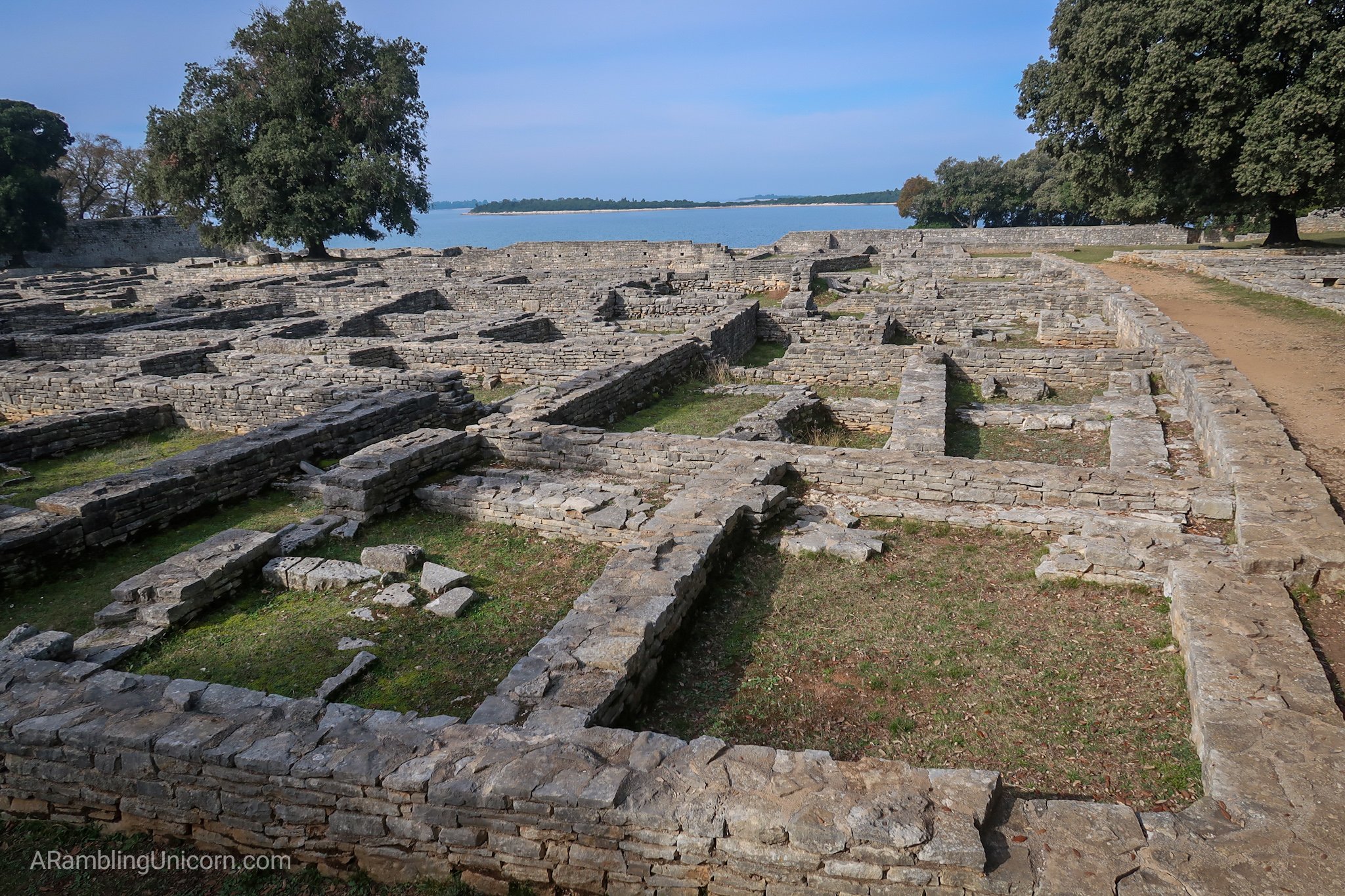
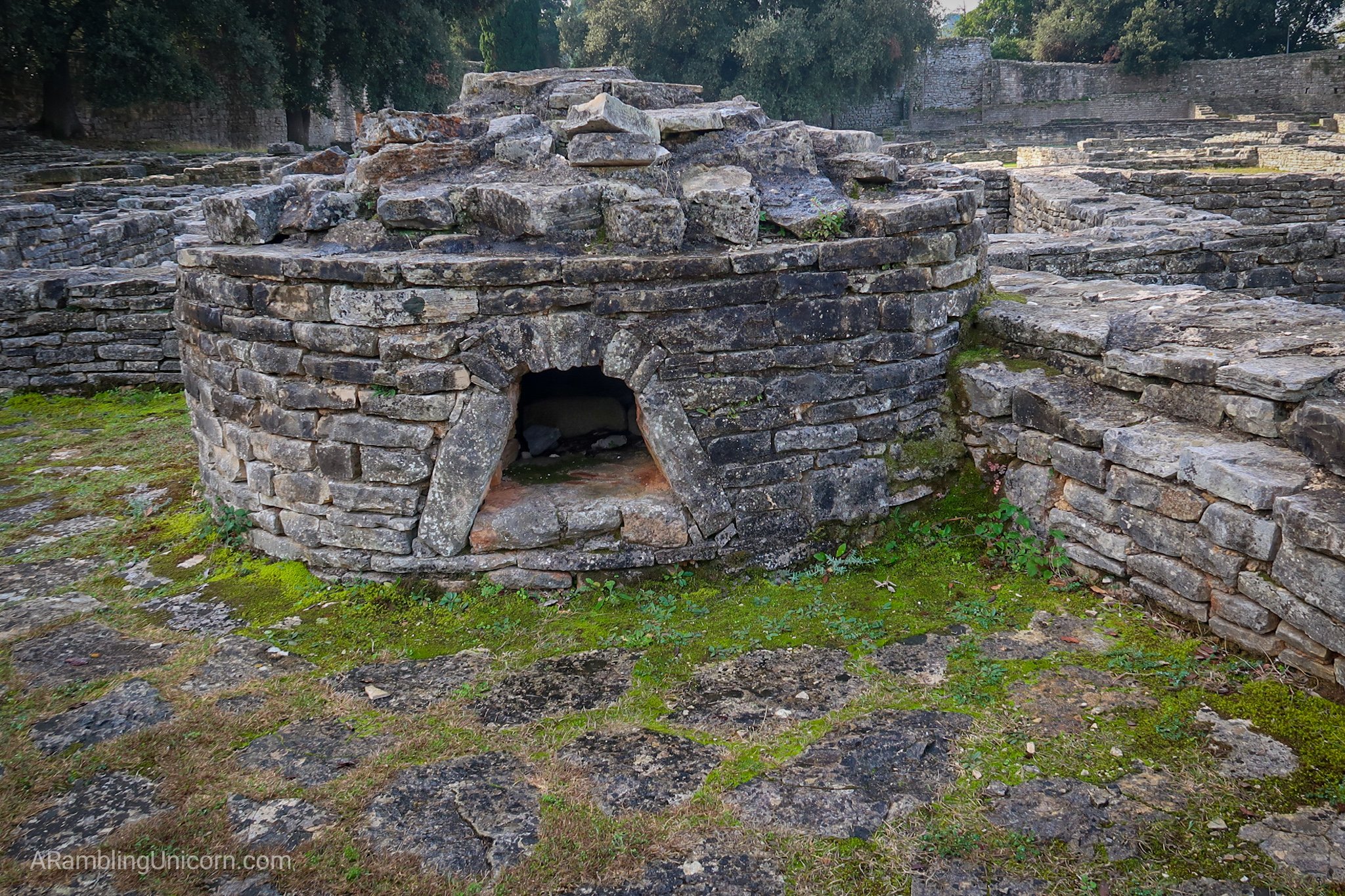
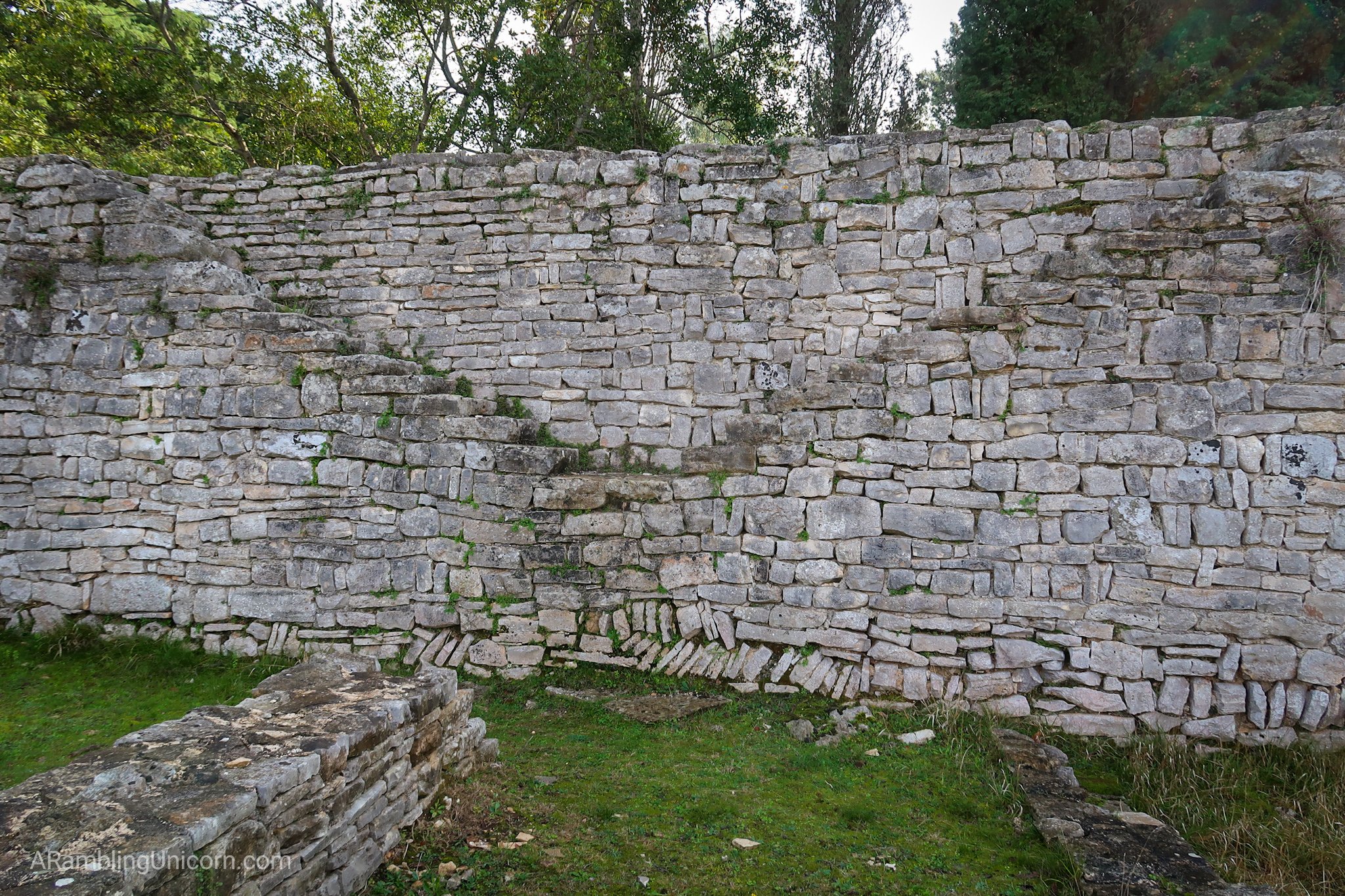

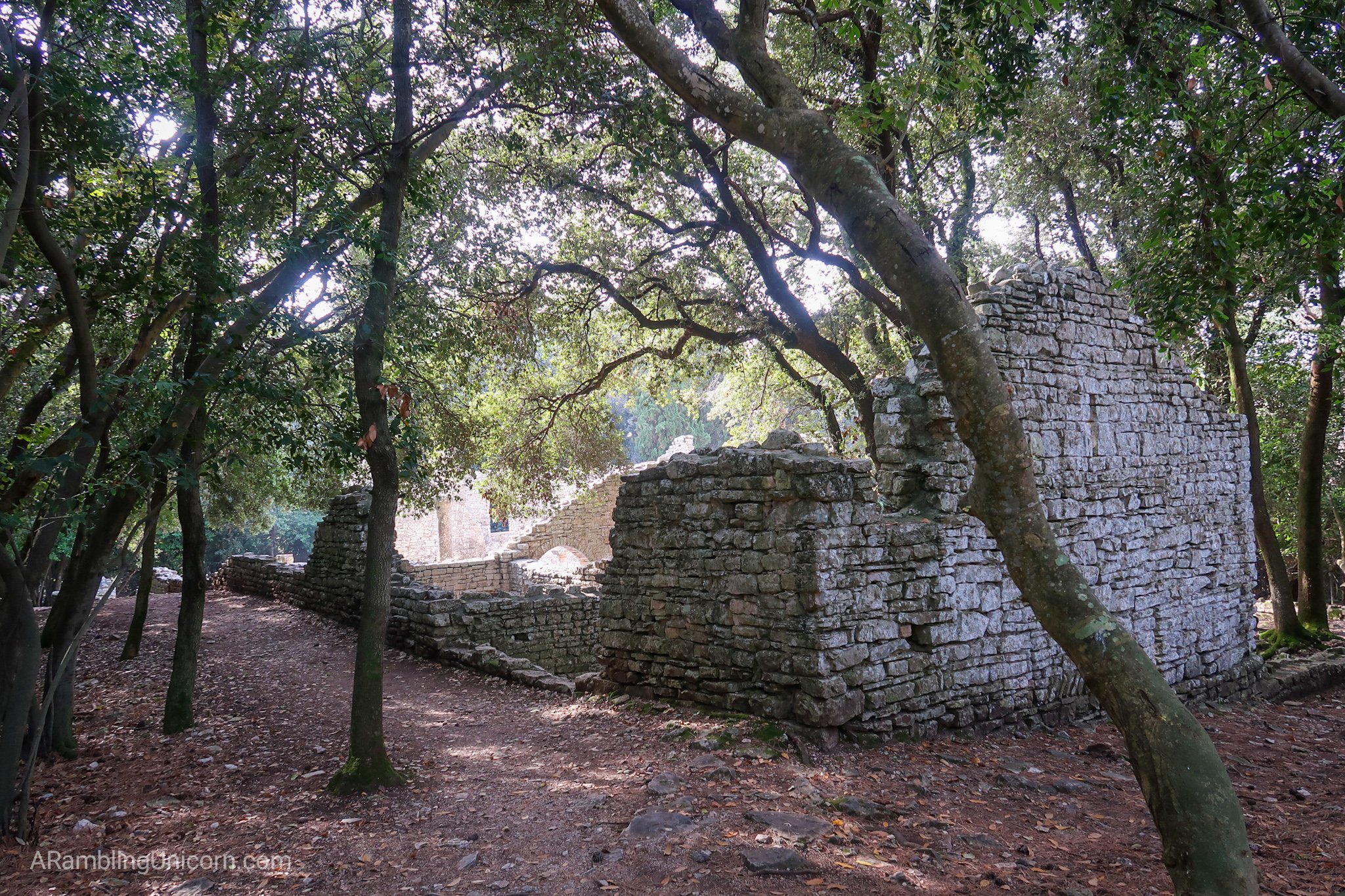
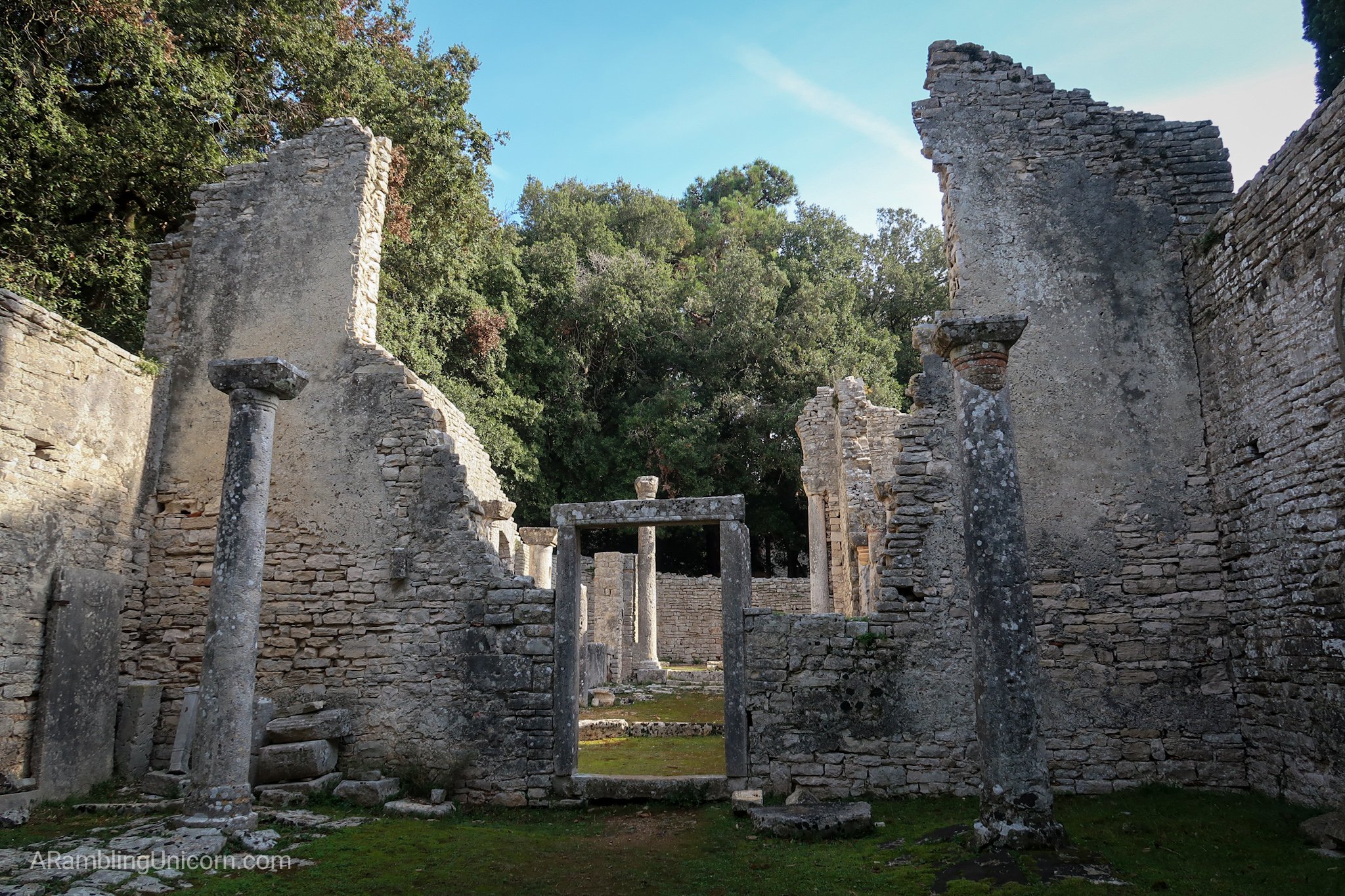
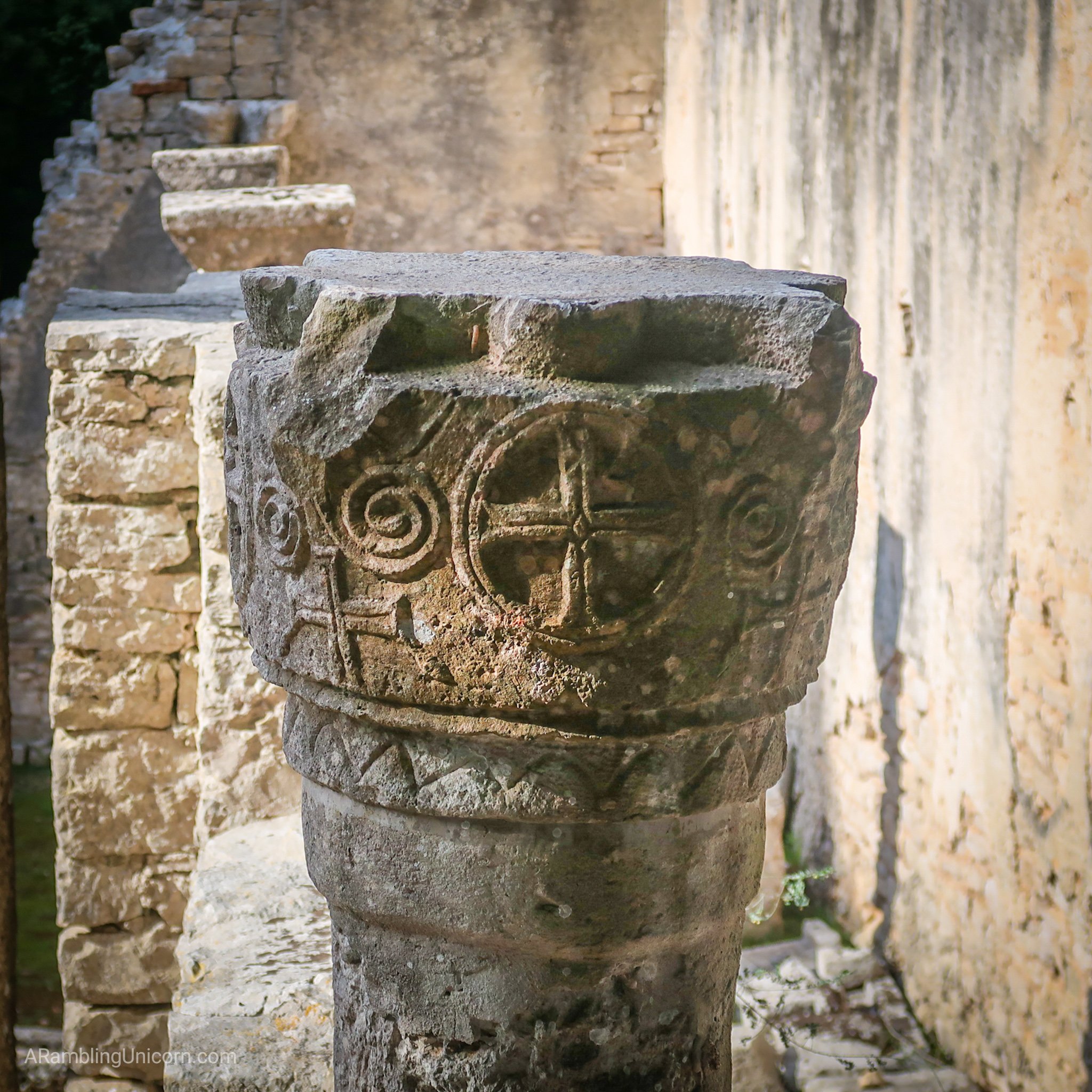
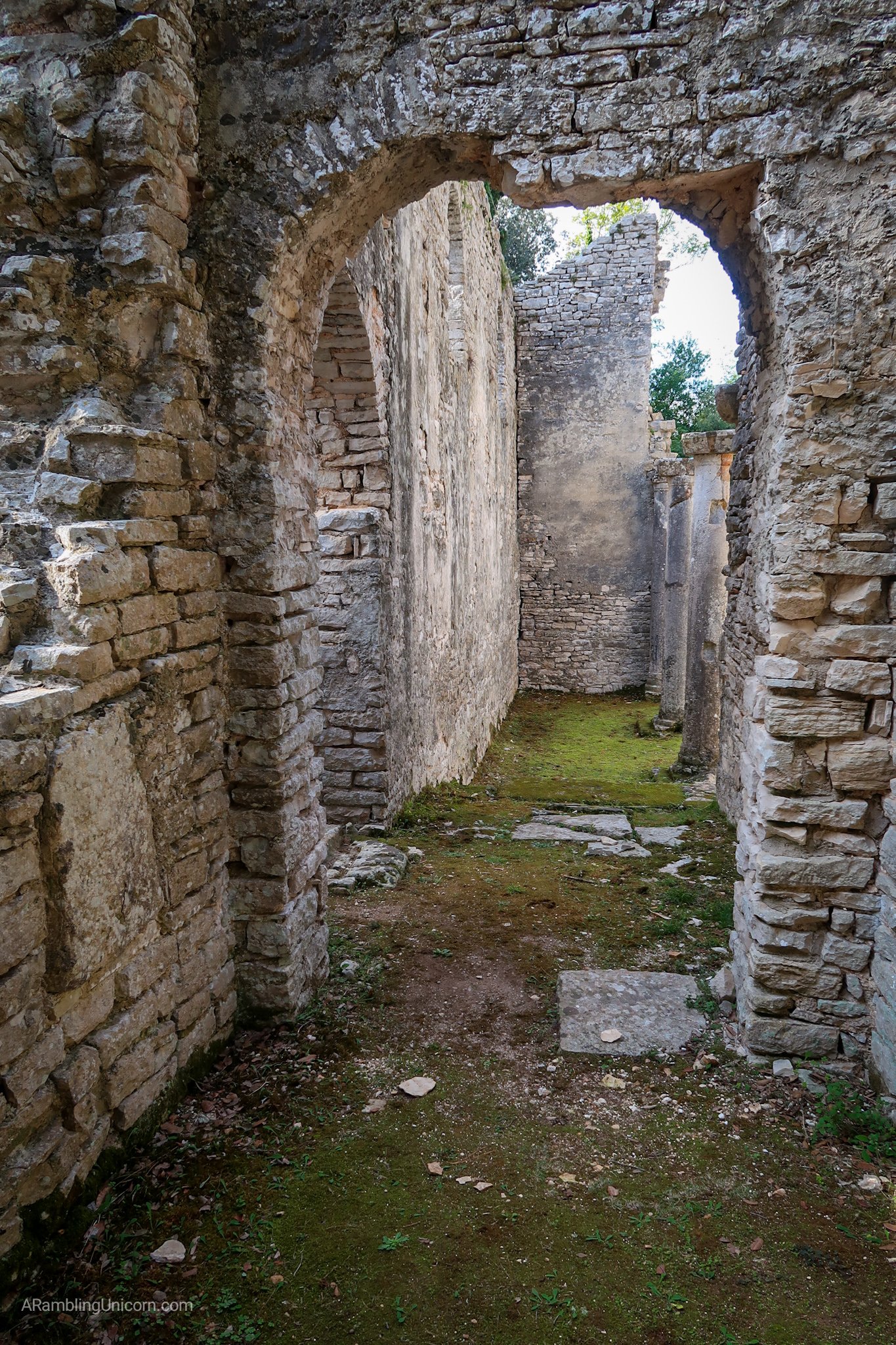
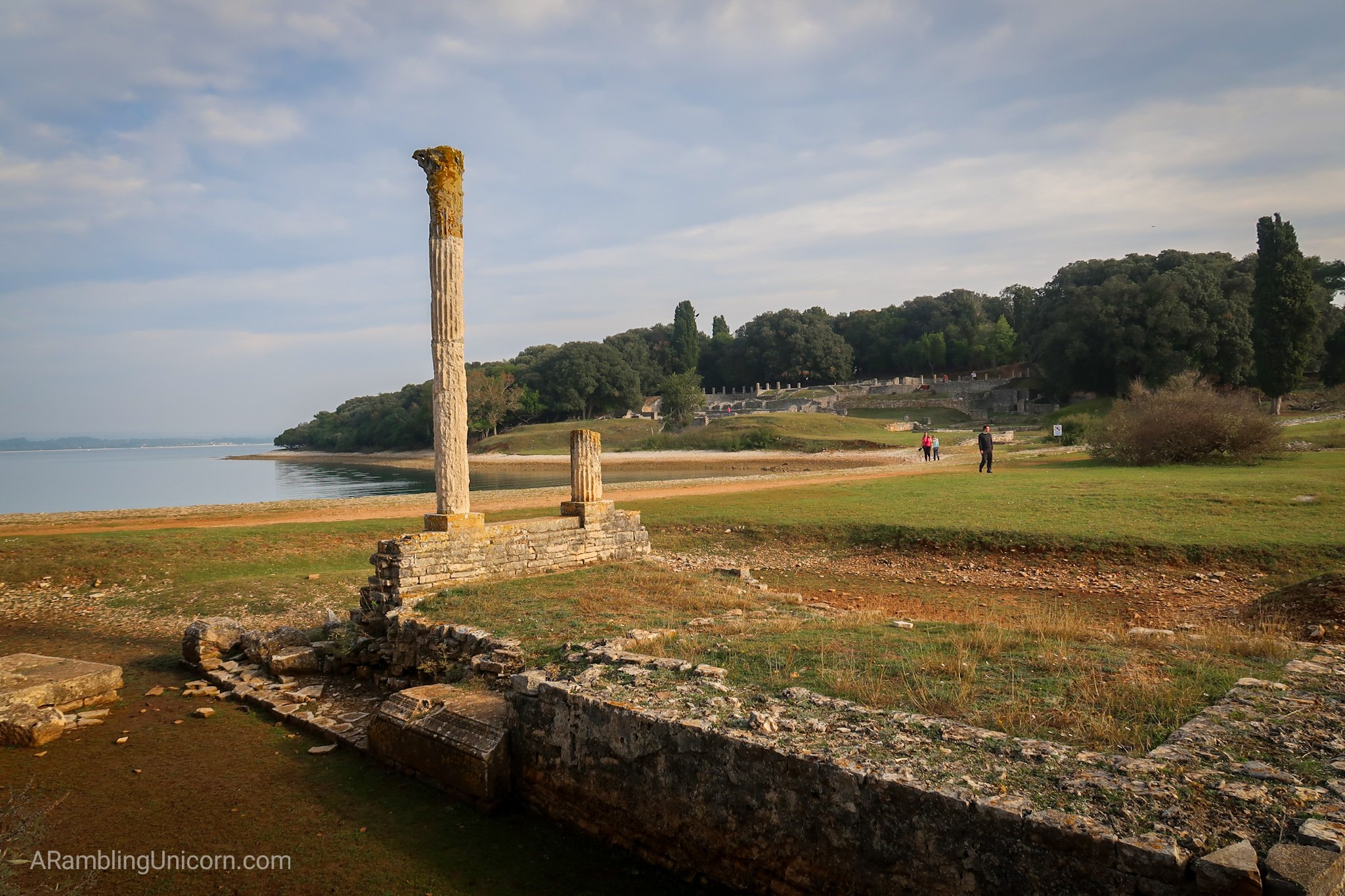


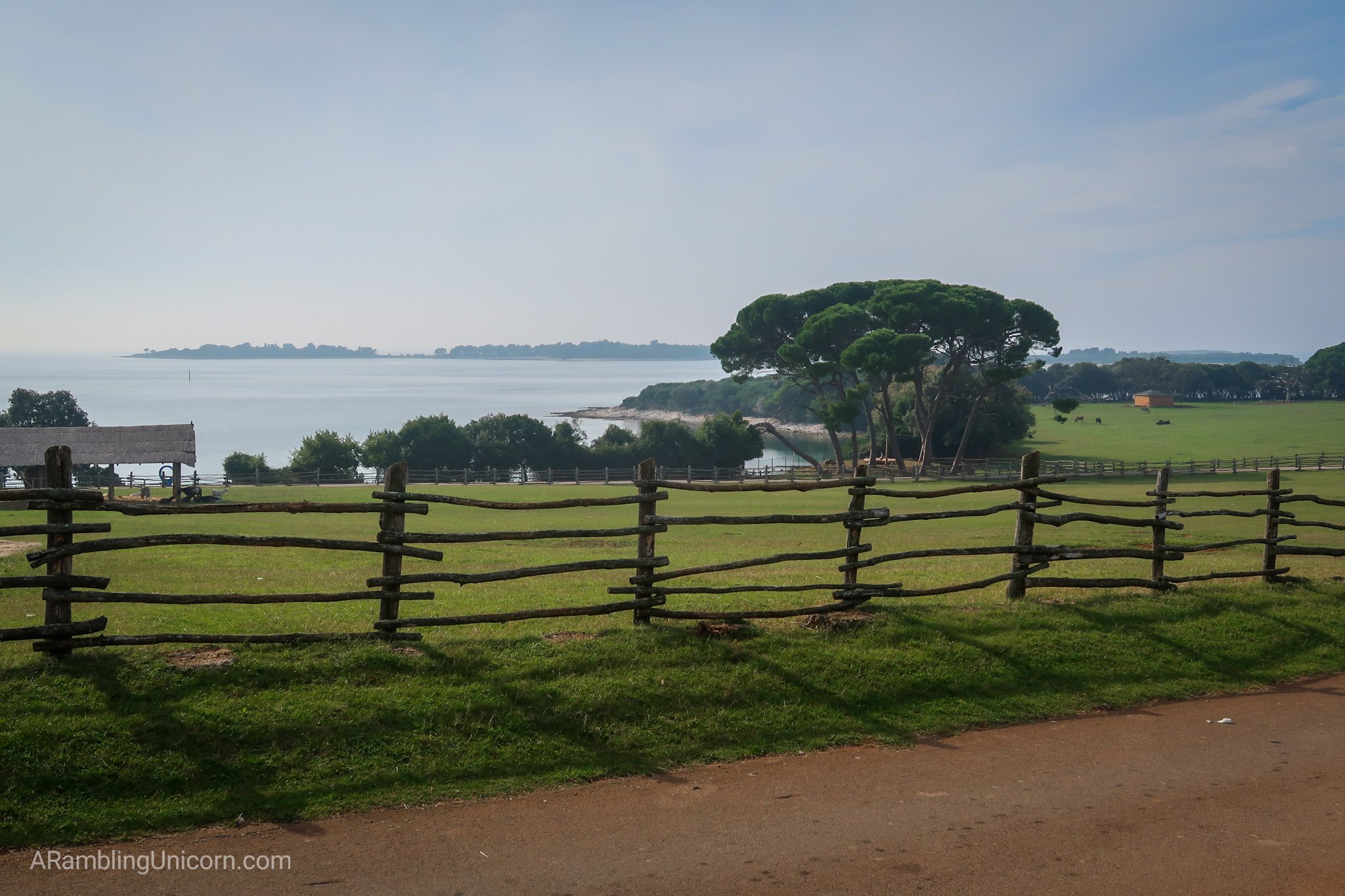
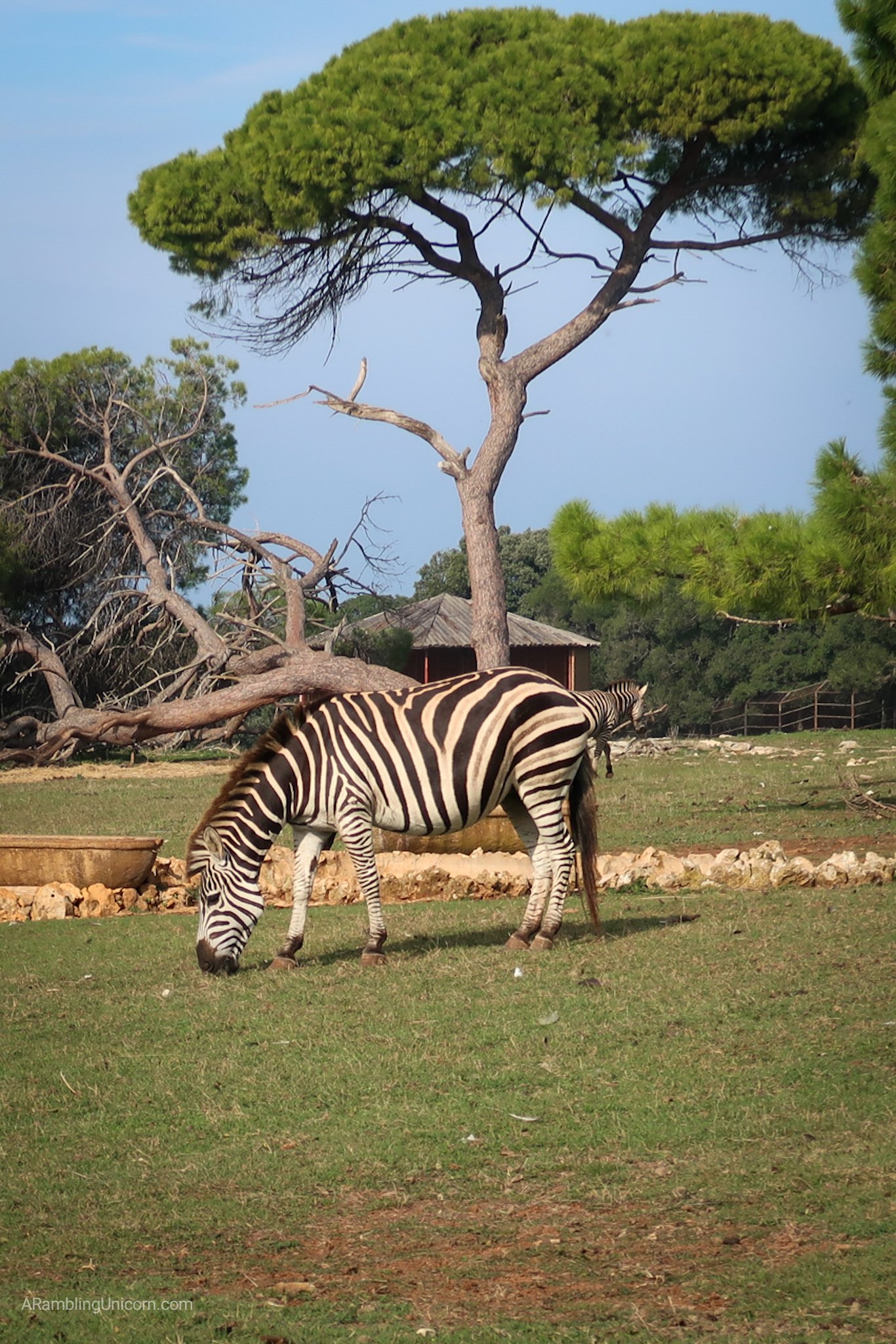
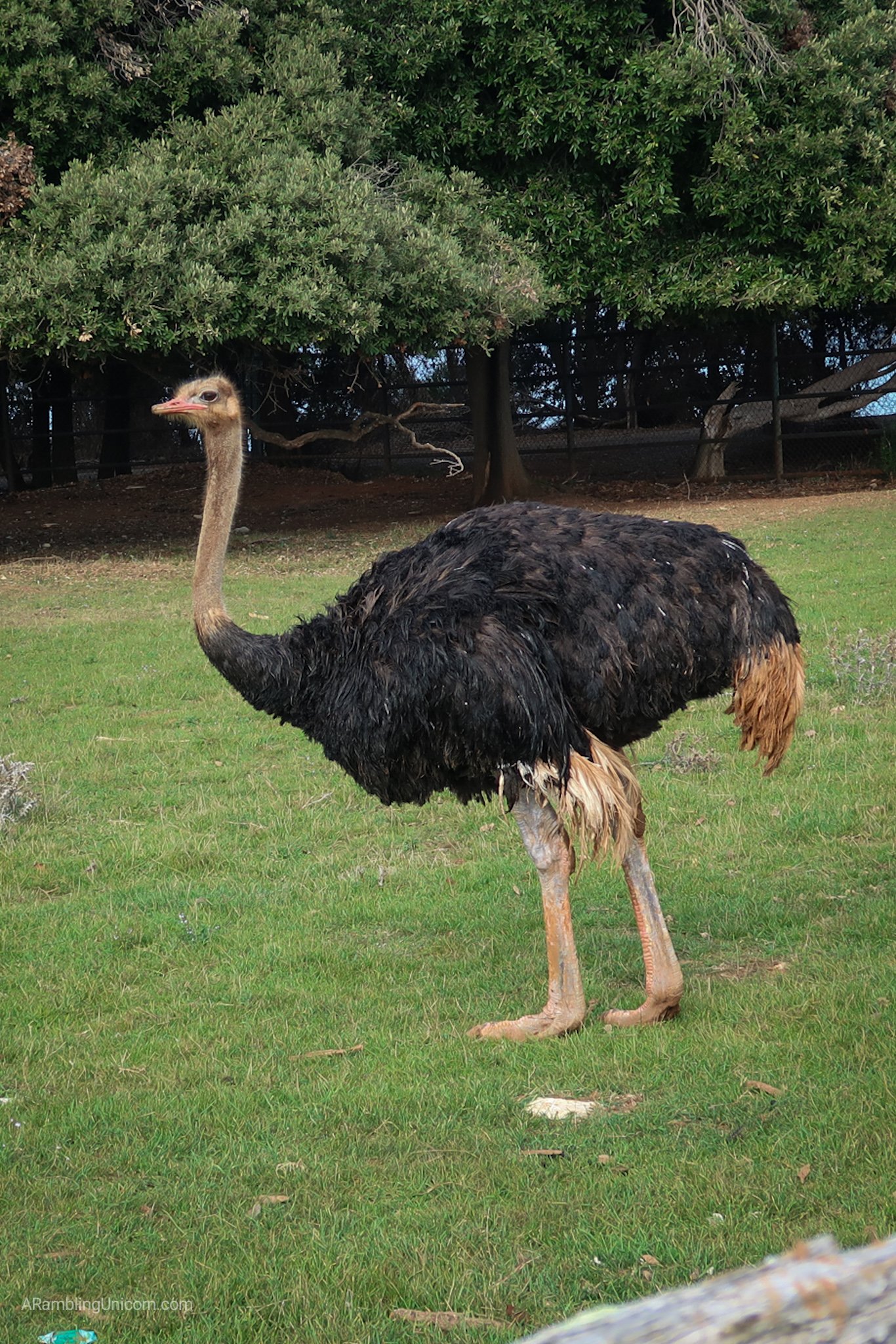
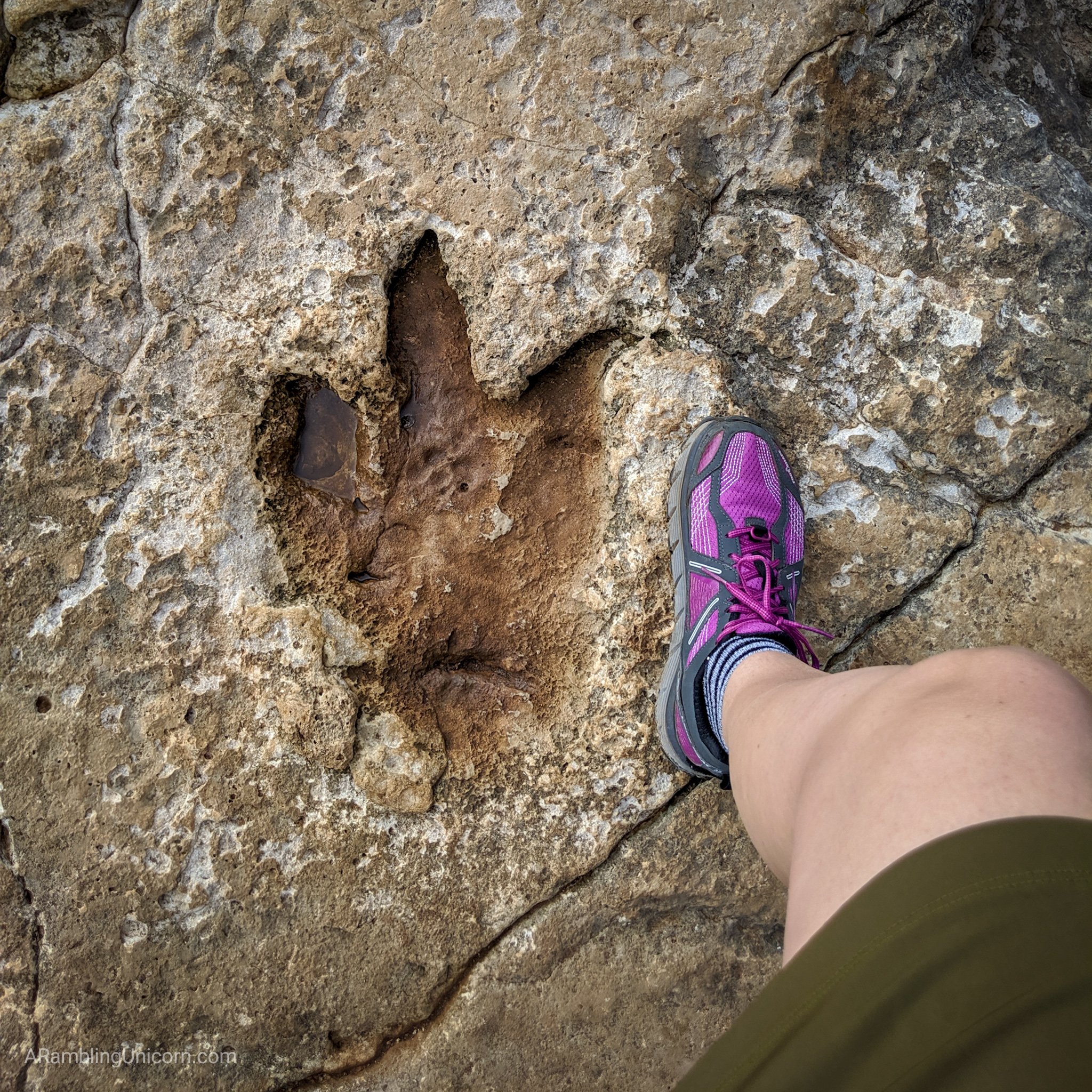

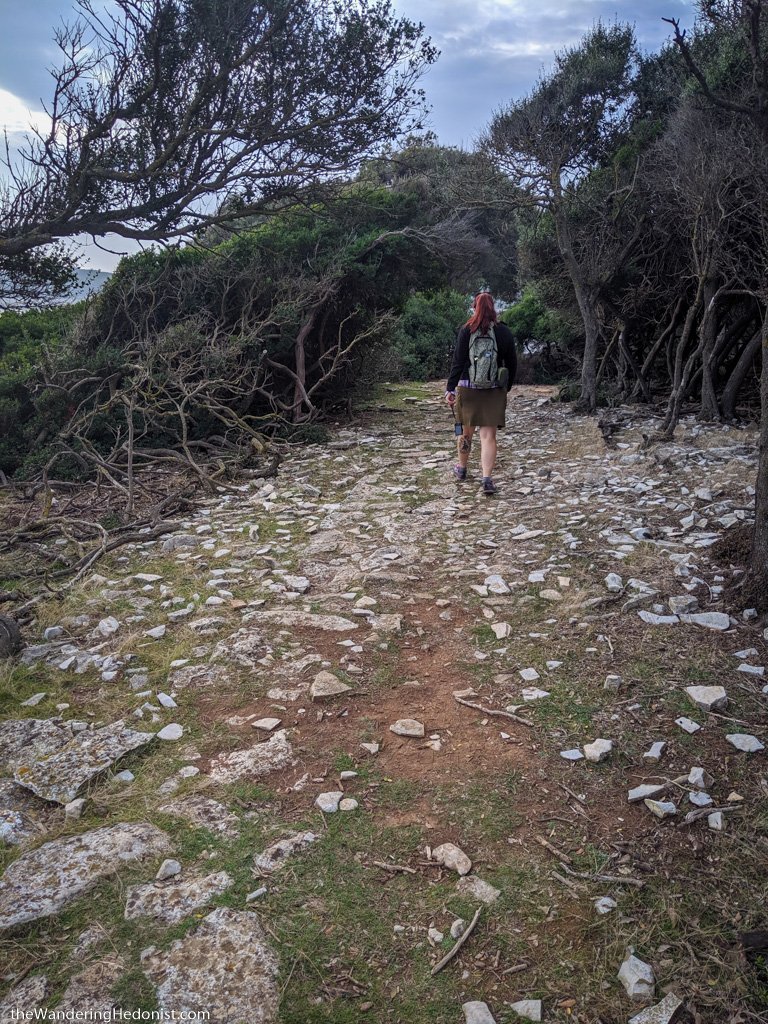
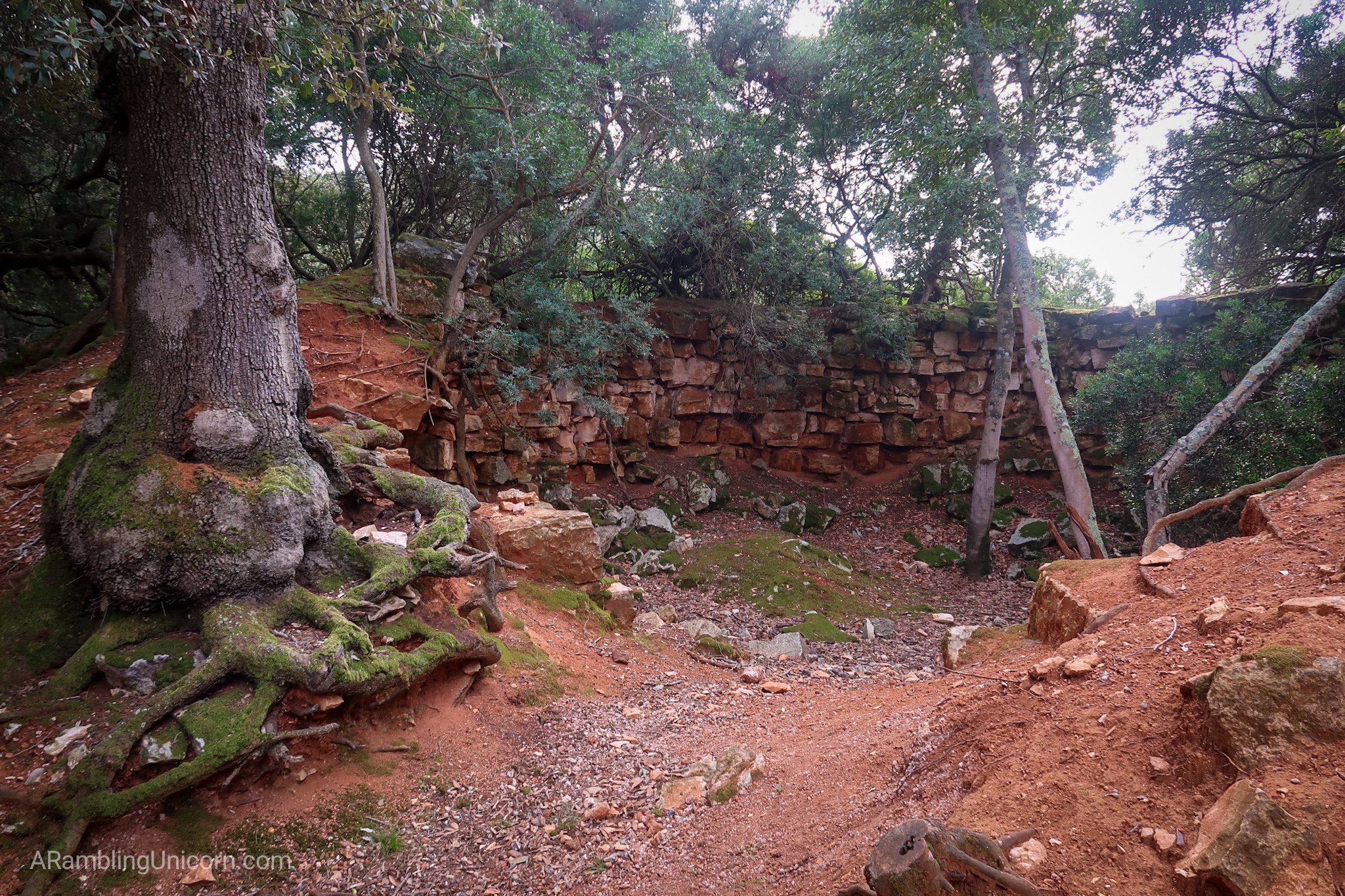

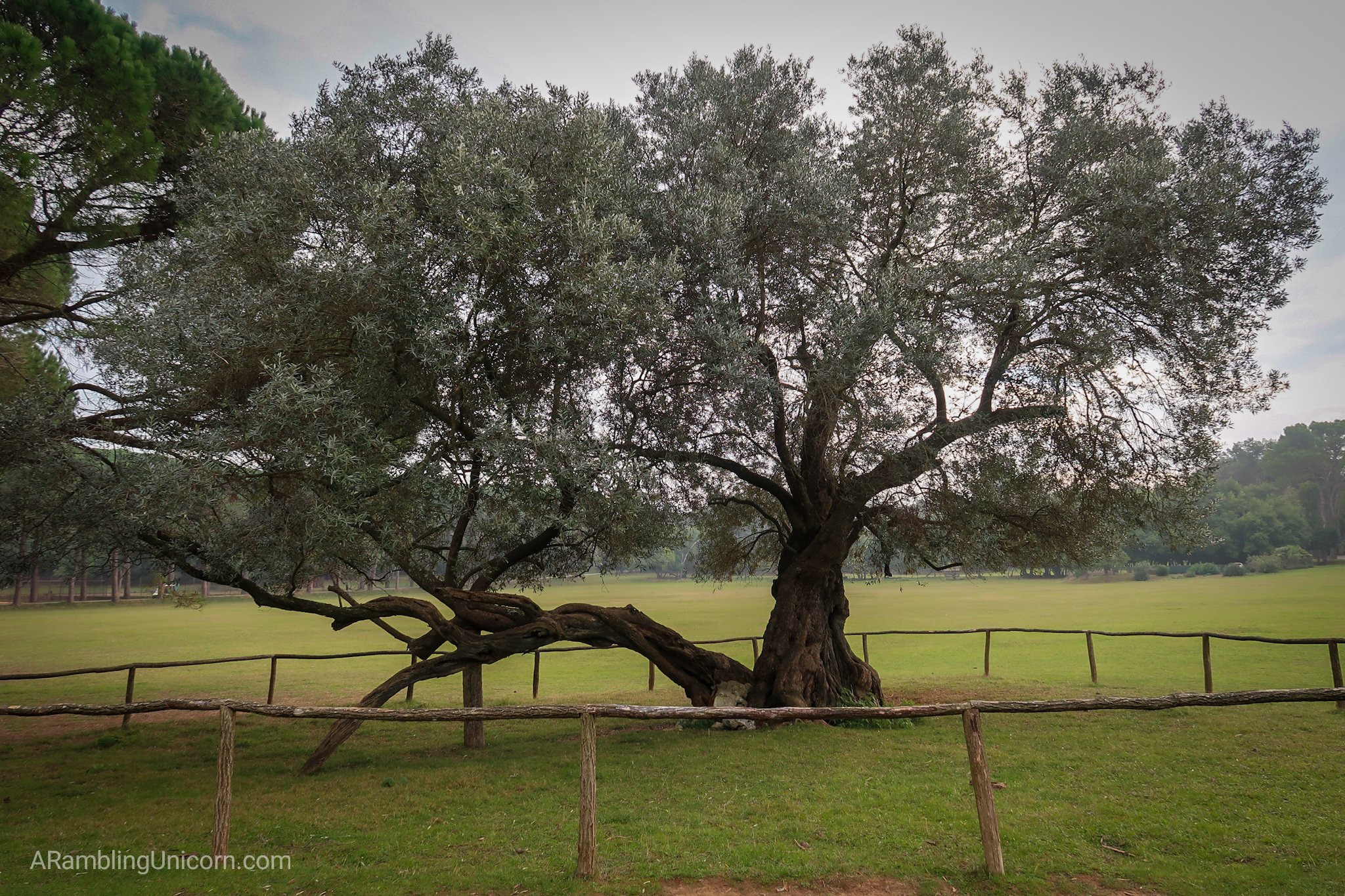
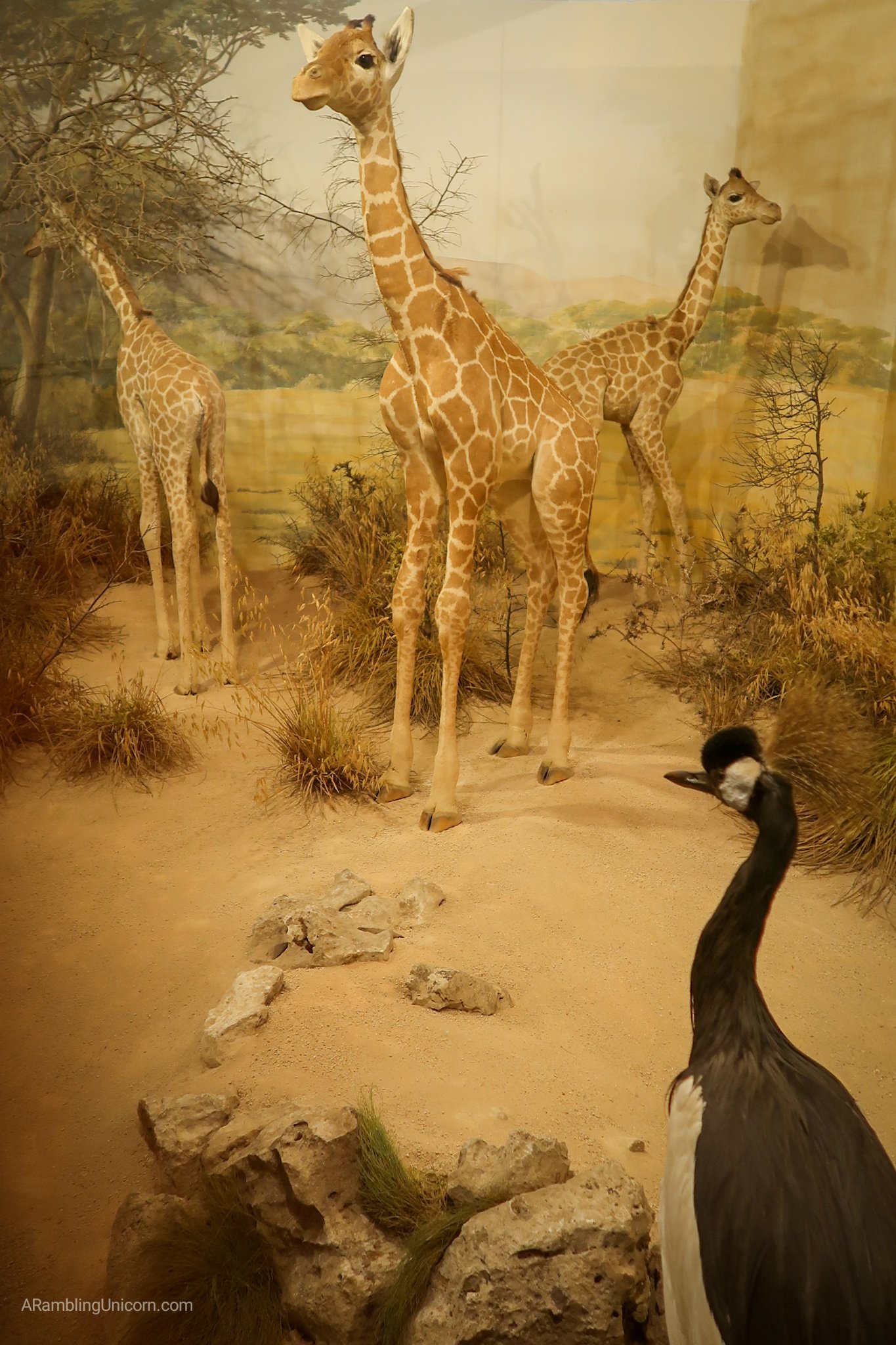
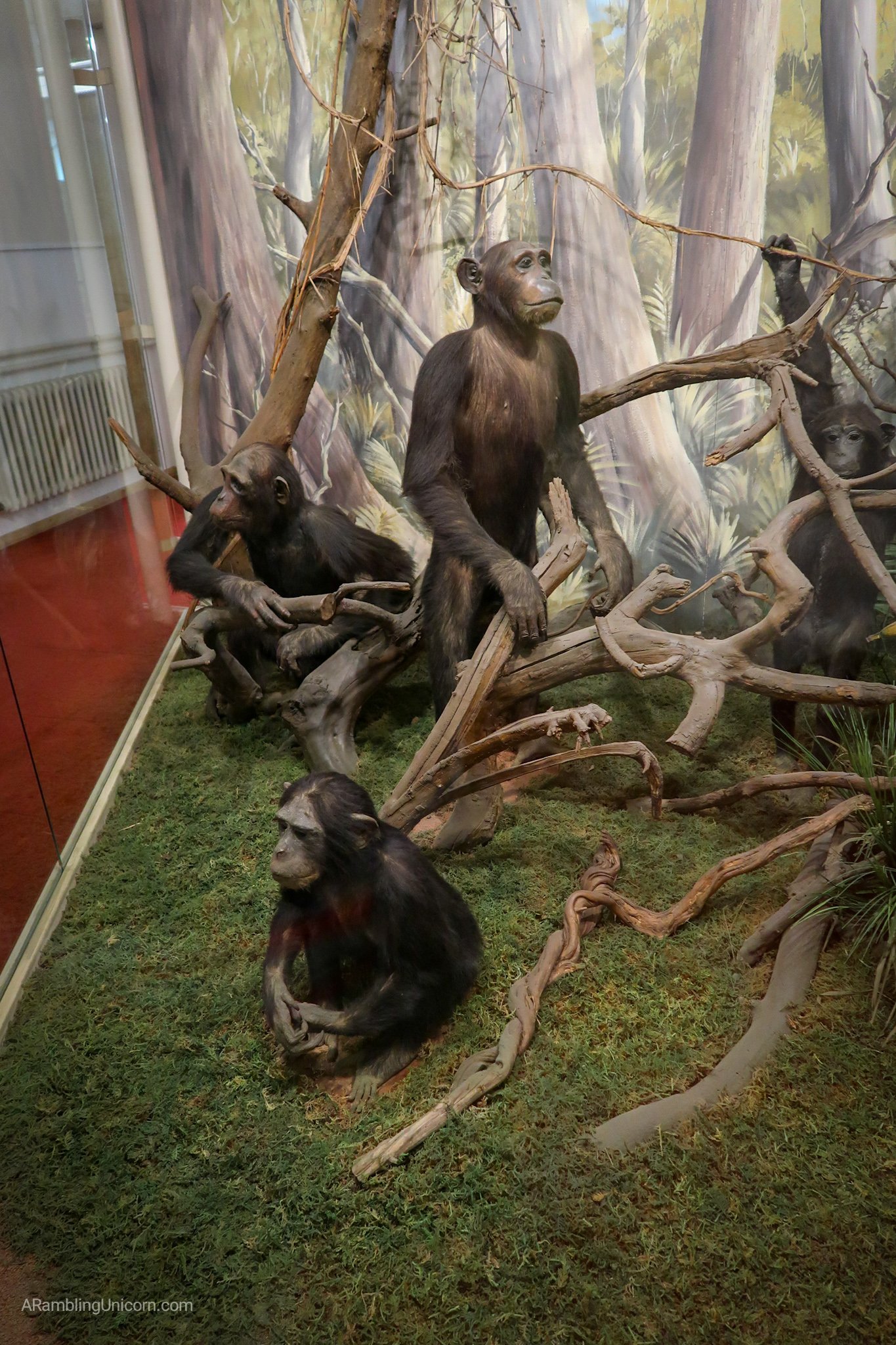
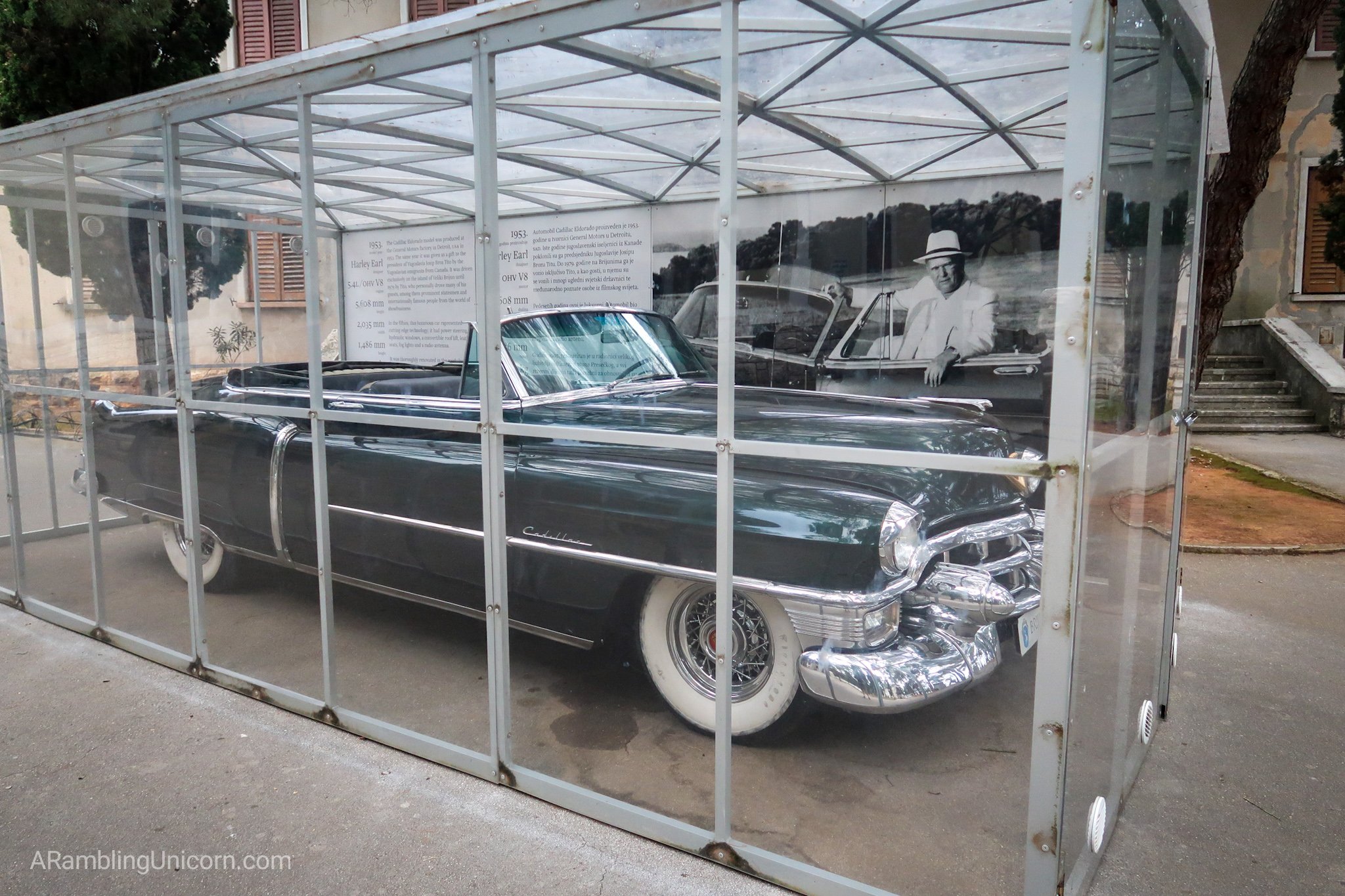

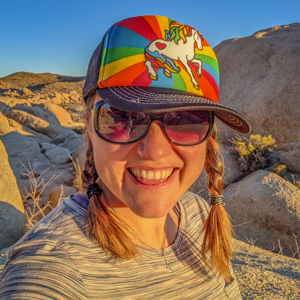
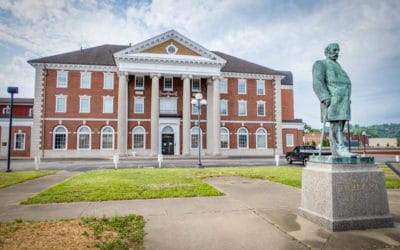
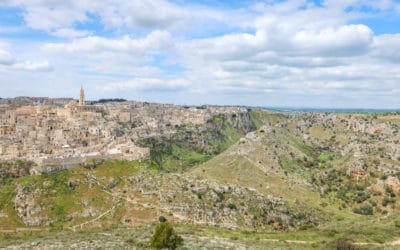
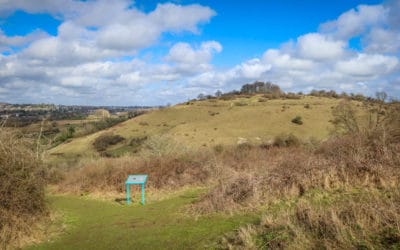
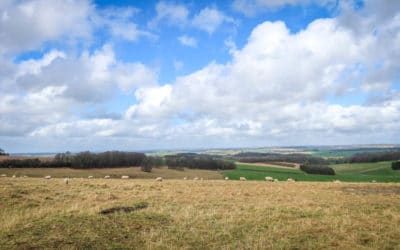
Really enjoying your posts! Thanks for sharing.
On Sun, Nov 3, 2019 at 2:30 PM a rambling unicorn wrote:
> Unicorn posted: “Monday, October 28, 2019 Vagabonding Day 28 Brijuni > National Park, Croatia National Parks. Anyone who knows me very well knows > that I’m obsessed with them. I dream about National Parks. Literally. I > have the Ken Burn’s documentary series “The National Pa†>
Thanks Rod! Glad you enjoy the blog 😊